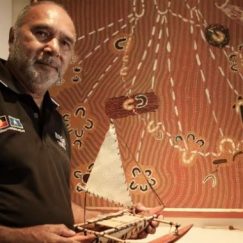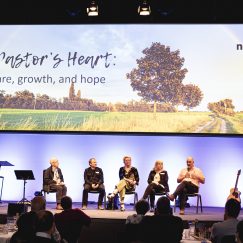29th April 2021
Welcoming Communities/ Who is my neighbour Devotion Part 2: Hospitality

Welcoming Communities/ Who is my neighbour
Part 2-Hospitality
by Rev Daniel Bullock
The concept of hospitality is an important idea in the Bible 1 . Followers of Jesus are encouraged to practise hospitality by showing kindness to strangers. This can be a challenge to the way we think about and practise hospitality in our society today. In western culture, generally the the way we approach hospitality is to invite someone we know or would like to know, to either share a meal together in our home or perhaps catch up at a local café. The idea is that we get together for a few hours, enjoy one another’s company then go our separate ways. There is nothing wrong with this form of hospitality, however, it is not the type of hospitality the Bible is concerned with.
In Eastern hospitality the host will go to great lengths to honour their guests. They will offer more food, more drinks and even a bed for the night. In return, a guest will try to honour the host by eating and drinking and staying as long as possible. Again, there is nothing wrong with this type of hospitality, however, this is also not the type of hospitality the Bible is concerned with.
The Bible is concerned with what I call divine hospitality – God’s hospitality! This is the type of welcome that pursues strangers: the sick, marginalised, elderly, frail, alien and even enemies with a costly love that is willing to sacrifice in order to welcome the stranger into God’s Kingdom, to adopt them as sons and daughters of the King.
We see Jesus illustrate this key principle of divine hospitality in Luke 10: 25-37 in his interactions with a lawyer who had been attempting to test Jesus with questions about how to inherit eternal life. When the lawyer posed the question “who is my neighbour?” (Luke 10:29) Jesus told the parable of the Good Samaritan – the account of the Samaritan who rendered assistance to an injured stranger when godly men such as a priest and Levite refused to do so. “Which one was a neighbour to the injured man?” Jesus asked at the end of the parable, to which the lawyer had to admit “the one who had mercy”, (referring to the Samaritan). Jesus responded, “Go and do likewise” and with this challenge Jesus unmasked the hypocrisy of the lawyer and at the same time all of us who read the story today.
It’s easy to theorise and generalise about love and compassion, or to justify why we can’t live inclusive lives, why we can’t involve ourselves with this group or that person. But every time we refuse to offer hospitality to the stranger, we reveal the limits of our understanding of the gospel. The challenge of this parable is to put our theology, convictions and ideals into reality. The challenge is to truly embody divine hospitality, through compassion, generosity and humility, and close the gap we have developed between our understanding of the stranger and Jesus’ definition of neighbour.
Questions for reflection:
- As a church or faith community, is hospitality to the stranger a natural part of your community life?
- In your own church context, what would a stranger experience attending your church or faith community for the first time?
- In your personal life, what changes do you need to make to be able to move towards the practice of divine hospitality? In your personal life, what changes do you need to make to be able to move towards the practice of divine hospitality?
Blessings,
Daniel
Director of Mission & Ministries
1 Lk 14:6-8; Rom 12:12-14; 1 Tim 5:9-11; Heb 13:1-3; 3 Jn 1:1-8











